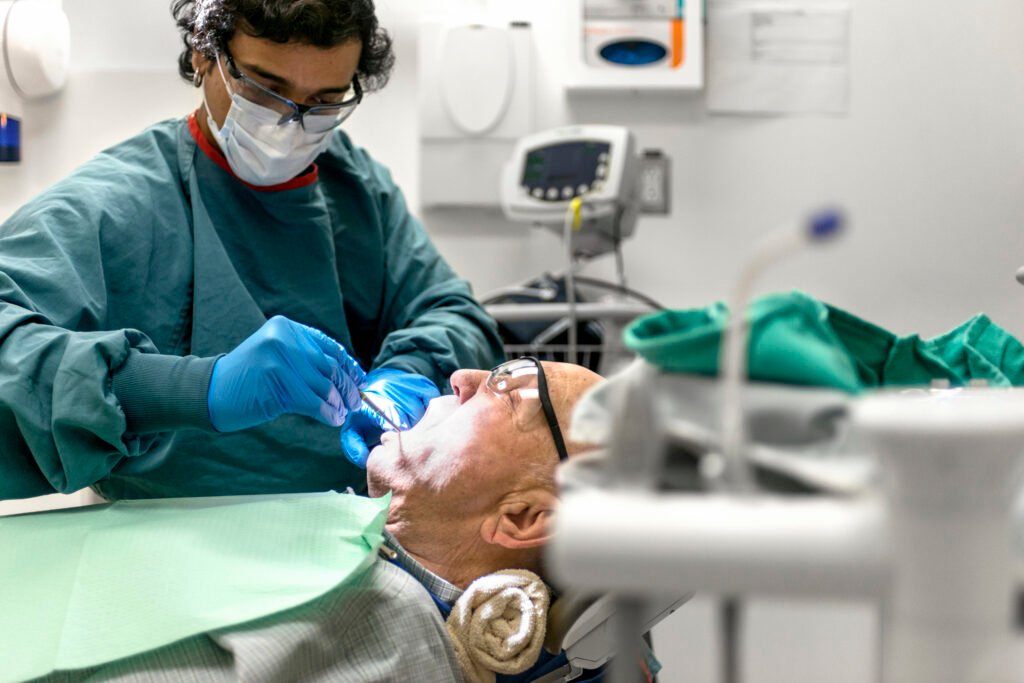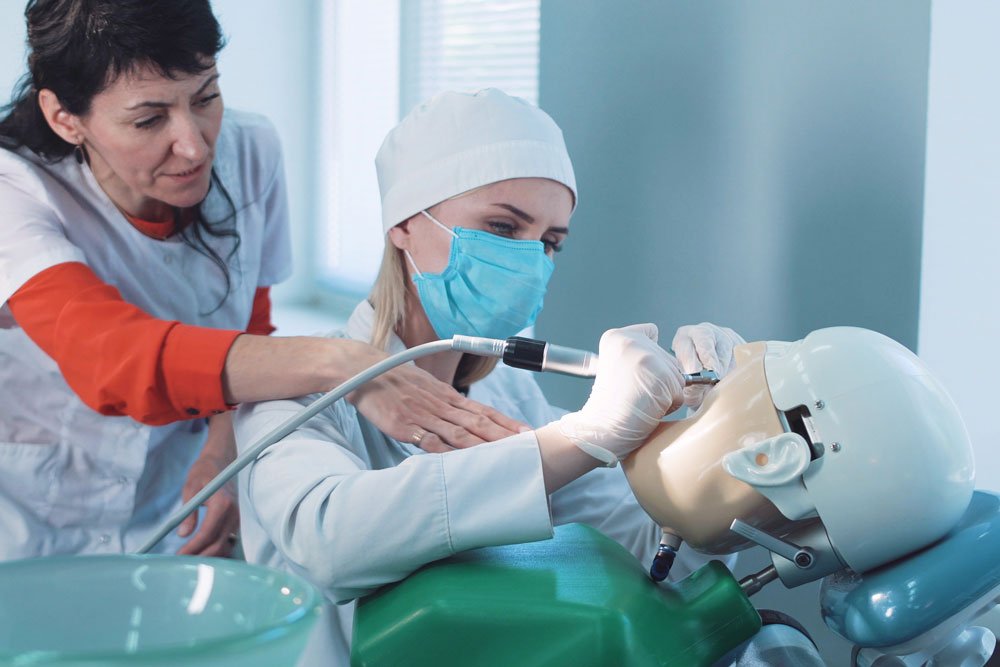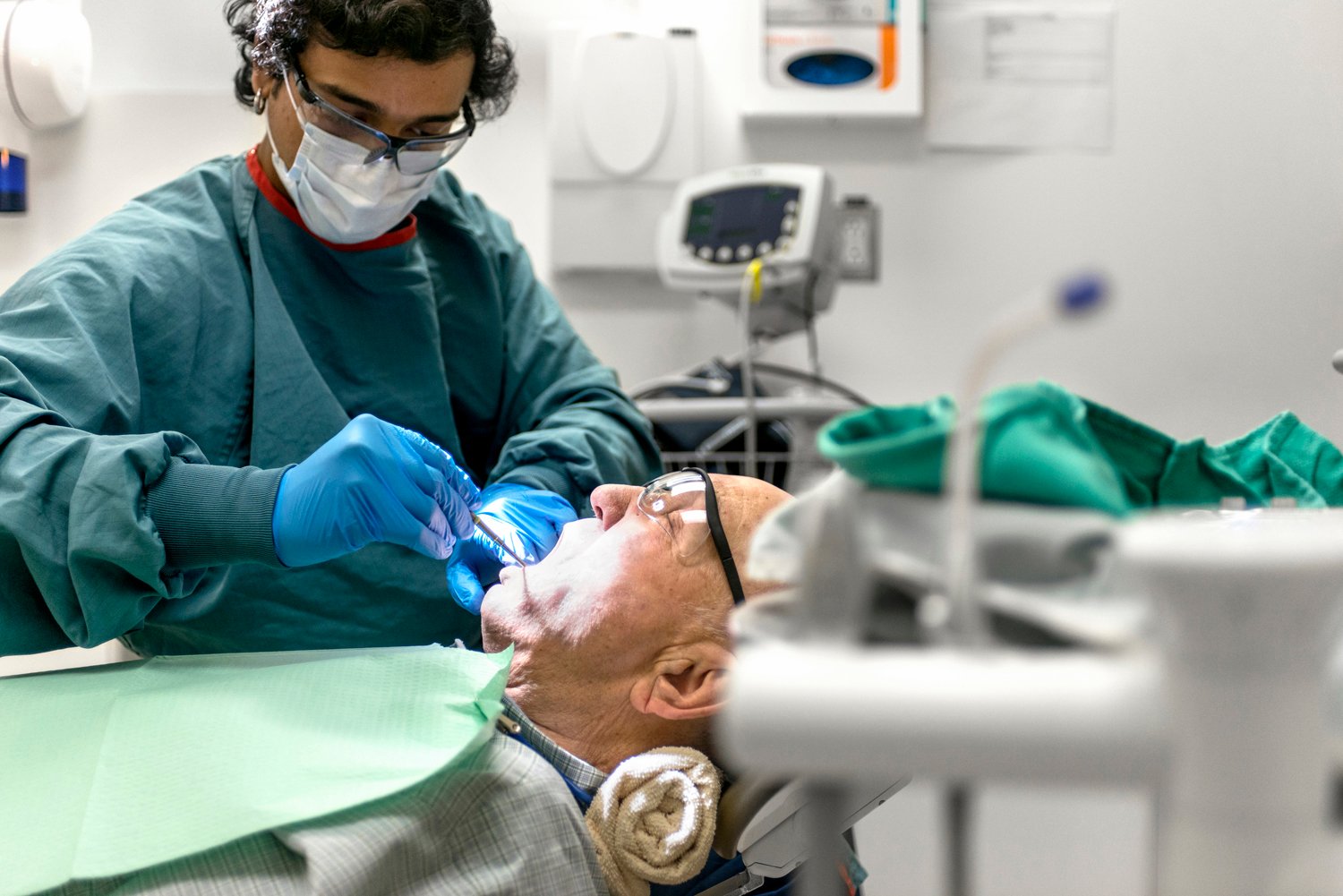Looking for top institutions offering dental hygiene courses in Canada? Discover the best programs that suit your career goals. In Canada, dental hygienic courses are the fresh road to success. In Canada, dental hygiene is a fulfilling job path since it offers necessary treatment and education aimed at oral health. Should you be thinking about working in this sector, you would want to know where in Canada to locate the top dental hygiene programs. Given so many programs, your success depends on selecting the correct university.
Why Study Dental Hygiene in Canada?
Dental hygiene is not an exception to Canada’s well-known high educational requirements. Graduates from Canadian universities gain a top-notch education, practical experience, and an increasing array of employment paths. Preventive treatment is highly valued in the Canadian healthcare system, which drives demand for oral healthcare experts. This offers dental hygienists a perfect setting for flourishing.
An important part of oral health, dental hygiene stresses the treatment and prevention of mouth disorders to progress general health. Programs for dental hygiene courses in Canada are supposed to give students the knowledge, skills, and practical experience needed to succeed in this field. Colleges, universities, and specialized training institutions among other companies offer these courses; diplomas, bachelor’s degrees, and sometimes graduate degrees follow from them.
Accreditation and Standards
To guarantee they satisfy national criteria for education and training, dental hygiene schools in Canada have to be approved by the Commission on Dental Accreditation of Canada (CDAC). Accreditation by the CDAC certifies that the program offers a thorough curriculum and sufficient clinical training; it also gets students ready for the National Dental Hygiene Certification Board (NDHCB) exam, which is needed for licensing in most provinces.
Read Also: Nursing Schools in Canada for International Students| The Best, Most Affordable, and Most Accessible
Career Opportunities and Outlook
Graduates of dental hygiene courses in Canada are greatly sought after throughout the country. Among the settings dental hygienists could come across are private dental offices, community health centers, hospitals, schools, and long-term care facilities. With the opportunity to specialize in public health, orthodontics, or periodontics, dental hygienists are becoming more and more important.
Apart from their clinical job, some dental hygienists also work in education, research, or healthcare administration. As preventive treatment and public health take the front stage, dental hygienists are increasingly vital in helping to preserve oral health and prevent disease on a more general basis.
Certification and Continuous Education
To work as a dental hygienist in Canada, graduates of the National Dental Hygiene Certification Exam (NDHCE) must get a license from their province or territory regulating body. The work of a dental hygienist also depends considerably on continuous education since it ensures they remain current with the most recent advancements in dental science and clinical methods. Many provinces have dental hygienists complete a set number of continuing education credits to retain their license.
Financial Considerations
The tuition for dental hygiene courses in Canada is determined by the program level and the institution. Community college diploma programs might occasionally be more affordable than bachelor’s and higher degree programs at universities. Students also need to consider the cost of supplies, textbooks, and clinical attire in addition to tuition. To assist with these costs, numerous colleges provide financial aid, scholarships, and bursaries.
Types of Dental Hygiene Programs

Diploma Programs: Usually taking two to three years to complete, a diploma is the most often used entry-level dental hygiene credential. Through a combination of didactic teaching and hands-on clinical experience, these programs assist students in gaining the technical proficiency required to perform operations such as patient education, root planning, and scaling.
Bachelor’s Degree Programs: A more in-depth education including advanced themes in dental science, research methodologies, and public health is offered by some colleges through a Bachelor of Science in Dental Hygiene. Usually running for four years, these courses equip students for leadership positions in public health, clinical practice, or education.
Advanced Degrees: Some universities grant master’s degrees in dental hygiene or allied disciplines to individuals interested in specialized jobs or academic professions. Opening doors to professions in teaching, research, or advanced clinical practice, these programs center on research, advanced clinical practices, and healthcare administration.
Bridge Programs: Bridge programs are intended for those from allied professions or dental assistants looking into dental hygiene. These courses provide the necessary background to qualify for a dental hygienist’s licensure. Those currently working in oral health who want to advance in their line of work. Graduates can work in licensed dental hygienists’ clinical settings.
Read Also: Rhodes Scholarship Program 2025 in UK Fully Funded
Curriculum and Course Structure
Core Subjects: Dental hygiene courses taught in Canada cover anatomy to physiology, microbiology to dental materials, and periodontology to pharmacology. Apart from concepts of dental hygiene, these fields enable one to understand oral health and diseases.
Clinical Training: A good share of oral hygiene initiatives include practical clinical practice. Under the direction of licensed professionals in dental offices, students treat patients and apply their knowledge in practical situations. Usually include scaling, root planing, radiography, and preventative treatments like fluoride and sealants, clinical training covers techniques.
Health Promotion and Public Health: Many programs highlight how dental hygienists help to advance oral health in society. Public health and health promotion courses equip students with knowledge of oral health, teach them how to create and carry out community-based initiatives, and enable them to cooperate with other medical experts.
Top 12 Institutions Offering Dental Hygiene Courses in Canada

1. University of Alberta
The University of Alberta’s School of Dentistry offers a quite prestigious Bachelor of Science in Dental Hygiene. This course is supposed to give students a strong foundation in the pragmatic and intellectual aspects of oral hygiene. Modern buildings and a focus on research enable the University of Alberta to educate its graduates to be leaders in their field. Under the leadership of seasoned professionals, the course emphasizes practical experience so that students may apply their knowledge in clinical settings.
2. Dalhousie University
Dalhousie University, housed in Halifax, Nova Scotia, provides a Bachelor of Dental Hygiene degree. Renowned for its demanding course which covers clinical practice, illness prevention, and health promotion the program offers Dalhousie’s program distinguishes itself for its dedication to community service, giving students chances to participate in outreach events and obtain hands-on experience. Strong links the university has to the dental community also help students, which may be quite helpful for networking and career advancement.
3. University of British Columbia (UBC)
Through its Faculty of Dentistry, the University of British Columbia provides a thorough dental hygiene program. Among the most sought-after dental hygiene courses available in Canada, UBC’s Bachelor of Dental Science in Dental Hygiene course is meant to foster advanced clinical abilities, ethical decision-making, and critical thinking. World-class facilities are available to UBC students, and they can engage in research initiatives helping the discipline to grow. Furthermore highly valued in the program are community involvement and multidisciplinary teamwork.
4. Fanshawe College
Dental hygiene advanced diplomas are available at London, Ontario’s Fanshawe College. Those seeking a more hands-on, practical method of learning will find a great fit in this curriculum. The courses offered by Fanshawe are meant to equip students with the tools they need to thrive in a hectic clinical setting. The program addresses oral health assessment, preventive dentistry, and treatment among other subjects. Strong ties to the local dental community give Fanshawe great chances for internships and career placement.
5. George Brown College
Toronto, Ontario’s George Brown College presents a well-respected diploma in dental hygiene. Among the best dental hygiene courses available in Canada, the program emphasizes real-world experience and useful skills. With an eye toward community health and patient care especially, George Brown’s approach combines classroom learning with clinical experience. Through collaborations with nearby dental offices and community organizations, the institution enables students to acquire practical experience in a range of environments, so arming them for a successful future in dental hygiene.
Read Also: University of Regina: Acceptance Rate, Ranking, Programs, Job Outcomes and Scholarships
6. Southern Alberta Institute of Technology (SAIT)
Highly respected nationwide, the Southern Alberta Institute of Technology provides a diploma in dental hygiene. SAIT, which is based in Calgary, Alberta, is well-known for stressing practical skills and patient care. Among other courses in oral pathology, dental radiography, and periodontology in the curriculum are Modern SAIT facilities, which feature simulation labs and a public dentistry clinic, giving students also significant clinical exposure. Employers highly value SAIT graduates since they are ready to enter the workforce.
7. Camosun College
Camosun College in Victoria, British Columbia, grants advanced diplomas in dental hygiene. Designed to provide students with a comprehensive education in dental hygiene comprising everything from anatomy and physiology to community health and dental supplies, the program provides Camosun’s curriculum is especially notable for its focus on public health; as part of their course, students work in communities. The close relationships the college has with the surrounding dental community also provide students access to excellent networking opportunities and job placements cultivating the region.
8. University of Manitoba
The University of Manitoba offers a Bachelor of Science in Dental Hygiene right from the College of Dentistry. Among the most comprehensive dental hygiene programs in Canada, this one provides students with a strong foundation in both the scientific and clinical domains of dental hygiene. Stressing ethical decision-making, critical thinking, and evidence-based practice, the University of Manitoba course The creative research facilities of the university assist students by allowing them to participate in investigations meant to improve the surroundings.
9. Toronto College of Dental Hygiene and Auxiliaries
Respected in the field, the Toronto College of Dental Hygiene and Auxiliaries grants a diploma in dental hygiene. The college’s program is meant to equip students with the tools and knowledge required to thrive in many dentistry environments. The course addresses treatments, preventive care, and oral health promotion among other subjects. A strong emphasis on clinical experience by the college guarantees that graduates are ready to start the workforce.
10. Confederation College
Celebrated for its extensive program and hands-on practicals, Confederation College in Thunder Bay, Ontario, grants a dental hygiene certificate. By providing pupils with the knowledge and abilities required to provide patients with outstanding treatment, the curriculum aims to prepare them for a bright future in dental hygiene. The Confederation College program covers oral health education, periodontal therapy, and dental radiography. One of the best opportunities for students to hone their talents under the tutelage of seasoned experts is working in the college’s on-campus dental clinic.
11. Vancouver Island University (VIU)
Vancouver Island University, one of the few universities in Canada providing a Bachelor of Dental Hygiene degree-level program, is well-known for its comprehensive approach to oral hygiene education; VIU’s program integrates theoretical knowledge with practical skills. Among other classes in dental anatomy, oral pathology, and community health are those in dental anatomy. Under the direction of seasoned professionals, students can also handle actual patients using VIU’s modern clinical facilities.
12. Ontario Tech University
Among the most sophisticated dental hygiene courses in Canada, Ontario Tech University offers a Bachelor of Health Science in Dental Hygiene The curriculum seeks to give students comprehensive knowledge of the science underlying dental hygiene as well as the required practical skills to treat patients with exceptional quality. Ontario Tech’s curriculum is particularly exceptional since it emphasizes research and evidence-based practice; students can assist studies to be conducted to help the field of employment.
Read Also: Luxembourg Work VISA 2024 Application Process (Types of Work Visa)

FAQs for Institutions Offering Dental Hygiene Courses in Canada

